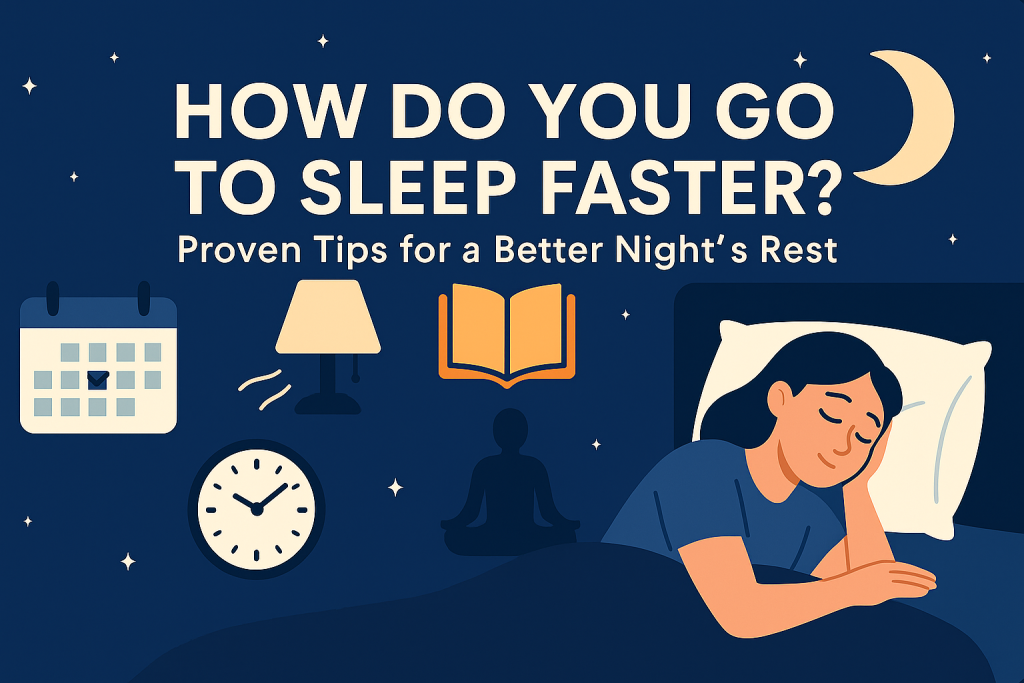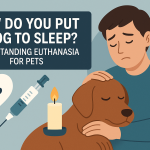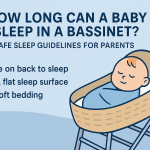Do you find yourself tossing and turning, staring at the ceiling, and wondering how to fall asleep faster? You’re not alone. Millions of people struggle with getting to sleep quickly, resulting in restless nights and groggy mornings. Fortunately, there are proven methods you can adopt tonight to drift off faster and enjoy a more restful sleep. In this comprehensive guide, we’ll explore effective strategies, sleep hygiene tips, and lifestyle adjustments to help you say goodbye to sleepless nights.
Why Can’t I Fall Asleep Quickly?
Before diving into solutions, it’s essential to understand why falling asleep can be challenging. Common culprits include stress, exposure to screens, poor bedtime routines, caffeine intake, and underlying health issues such as anxiety or insomnia. By targeting these factors, you can improve your sleep latency—the amount of time it takes to fall asleep.
Establish a Consistent Sleep Routine
One of the most effective ways to go to sleep faster is to train your body’s internal clock. Our bodies thrive on routine and respond well to consistency. Here’s how to set your sleep schedule:
- Go to bed and wake up at the same time every day, even on weekends.
- Follow a wind-down routine for 30-60 minutes before bedtime.
- Avoid naps after 3 PM, as they can disrupt your sleep cycle.
Create the Perfect Sleep Environment
Your bedroom should be a sanctuary for rest and relaxation. Small changes can make a huge difference in how quickly you fall asleep:
- Keep the room cool, dark, and quiet (around 65°F or 18°C is ideal).
- Invest in blackout curtains, earplugs, or a white noise machine if needed.
- Choose a comfortable mattress and pillow supporting your sleep posture.
- Reserve your bed for sleep and intimacy, not work or TV.
Limit Exposure to Blue Light Before Bed
Blue light from phones, tablets, and computers can suppress melatonin, the hormone that regulates sleep. To help you go to sleep faster:
- Turn off electronic devices at least 30-60 minutes before bedtime.
- Use blue light filters or “night mode” on your devices in the evening.
- Consider reading a physical book or listening to calming music instead.
Watch What You Eat and Drink
Your evening diet can significantly impact how quickly you fall asleep. Pay attention to:
- Avoid caffeine in the afternoon and evening (coffee, tea, energy drinks, chocolate).
- Limit alcohol and heavy meals before bed, which can disrupt your sleep cycle and make it harder to stay asleep.
- Opt for light snacks if you’re hungry—a banana, a small bowl of oatmeal, or a handful of nuts are good choices.
Practice Relaxation Techniques
Relaxing your mind and body is key to falling asleep quickly. Try these evidence-based methods:
Progressive Muscle Relaxation
Tense and then slowly relax each muscle group in your body, starting with your toes and moving upward. This technique can help release physical tension and signal to your body that it’s time for sleep.
Deep Breathing Exercises
Try the 4-7-8 breathing technique: inhale for 4 seconds, hold your breath for 7 seconds, and exhale slowly for 8 seconds. Repeat this cycle several times to reduce anxiety and slow your heart rate.
Mindfulness and Meditation
Mindfulness meditation has been shown to improve sleep quality. Focus on your breath or visualize a peaceful scene. Let stray thoughts pass by without judgment.
Adopt Healthy Lifestyle Habits
- Stay active: Regular daytime exercise can help you fall asleep faster, but avoid vigorous workouts close to bedtime.
- Manage stress: Journaling, yoga, or talking to a friend can alleviate worries that keep you up at night.
- Get sunlight exposure in the morning to reinforce your natural sleep-wake cycle.
Try Sleep Aids—Wisely
While natural or over-the-counter sleep aids like melatonin supplements can help on occasion, they should not be relied upon long term. Always consult with a doctor before starting any new supplement, especially if you have underlying health conditions or take medication.
Common Myths About Falling Asleep Faster
- Myth: Alcohol helps you sleep.
- Truth: While it may make you feel sleepy initially, alcohol disrupts REM sleep and leads to poorer sleep quality.
- Myth: Lying in bed longer will help you fall asleep.
- Truth: If you can’t sleep after 20 minutes, it’s better to get up and do a quiet activity until you feel sleepy.
When to Seek Professional Help
If you consistently struggle with falling asleep despite trying these tips, you may be experiencing insomnia or another sleep disorder. Consult a healthcare professional or sleep specialist if your sleep difficulties:
- Persist for more than a few weeks
- Interfere with your daily functioning
- Are accompanied by symptoms like loud snoring, gasping, or restless legs
Summary: Quick Tips for Falling Asleep Faster
- Stick to a regular sleep schedule.
- Practice a relaxing wind-down routine.
- Limit screen time before bed.
- Avoid caffeine and heavy meals at night.
- Make your bedroom comfortable and sleep-friendly.
- Use relaxation techniques like deep breathing or meditation.
- Seek help if sleep issues persist.
Conclusion
Falling asleep quickly is possible by adopting the right routines and habits. By making small changes to your environment, diet, and pre-sleep behaviors, you can enjoy better, more restorative sleep. Remember that quality sleep is crucial for your overall health and well-being. Start implementing these expert-backed tips tonight, and you’ll be on your way to deeper, faster sleep in no time.


